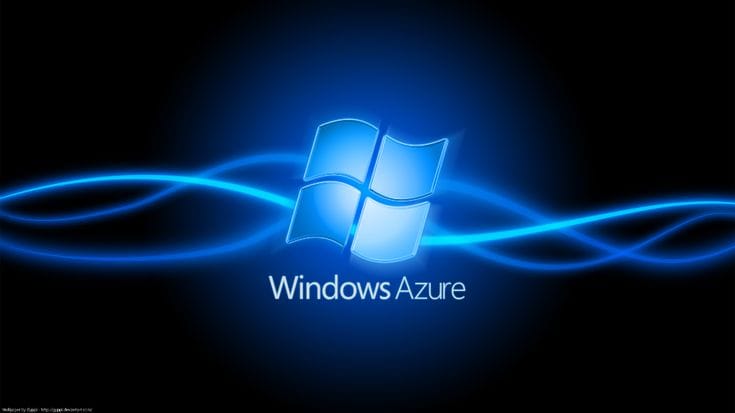How Microsoft’s Strengths and Opportunities Shape Its Future
With a comprehensive SWOT analysis, explore Microsoft’s strengths, weaknesses, opportunities, and threats. Discover recent developments in AI integration, global investments, and financial performance, highlighting Microsoft’s strategic moves and future potential.

Microsoft continues to be a dominant force in the technology sector, known for its robust product portfolio and substantial global influence. This blog post provides a comprehensive SWOT analysis of Microsoft, followed by an evaluation of recent developments that indicate whether the company is on an upward trajectory. This information is crucial for entrepreneurs looking to understand the competitive landscape and the strategic moves of a significant industry player.
Satya Nadella: “Our mission is to empower every person and every organization on the planet to achieve more. And we will do this by building best-in-class platforms and productivity services for an intelligent cloud and an intelligent edge infused with AI.”
Strengths
1. Strong Brand Reputation
Microsoft is a household name known for its reliability and trustworthiness. This strong brand reputation provides a competitive edge, ensuring customer loyalty and attracting new users.
2. Diverse Product Portfolio
The company offers various products and services, from Windows OS and Office Suite to Azure cloud services, LinkedIn, and Xbox. This diversity helps mitigate risks associated with market fluctuations in any single segment.
3. Financial Stability
With consistently high revenue and profitability, Microsoft has significant cash reserves and strong stock performance. This financial stability allows for continuous investment in innovation and expansion.
4. Innovation and R&D
Microsoft's heavy investment in research and development leads to continuous innovation and new product launches. The company is at the forefront of technological advancements, particularly in cloud computing and artificial intelligence.
5. Market Leader in Cloud Computing
Microsoft’s cloud service, Azure, is one of the top providers globally, competing closely with Amazon Web Services (AWS). This leadership in cloud computing positions Microsoft as a critical player in the digital transformation of businesses.
6. Strong Partnerships
Microsoft has strategic alliances with numerous tech companies, enhancing its market reach and technological capabilities. These partnerships help integrate services and provide comprehensive solutions to customers.
Weaknesses
1. Dependence on Windows and Office
Despite diversification, a significant portion of Microsoft's revenue still comes from Windows and Office products. This dependence could be vulnerable if market dynamics shift away from these core products.
2. Late Entry in Mobile Market
Microsoft’s attempts to capture the mobile operating system market, such as with Windows Phone, have not been successful. This late entry has resulted in a lack of presence in a critical segment.
3. Complex Licensing
The complexity of Microsoft's licensing agreements can be a barrier for customers, leading to potential dissatisfaction and loss of business.
4. Cybersecurity Threats
As a major tech company, Microsoft is a prime target for cyber attacks. Ensuring data security and protecting against breaches is an ongoing challenge that could impact its reputation and customer trust.
Opportunities
1. Expansion in Cloud Computing
The cloud computing sector is growing continuously, with more businesses migrating to the cloud. Microsoft's Azure can leverage this trend to increase its market share.
2. Artificial Intelligence and Machine Learning
Increasing investments and advancements in AI and machine learning present significant growth opportunities. Microsoft's recent AI integrations, such as Copilot+ PCs, highlight this potential.
3. Gaming Industry Growth
The gaming sector is expanding rapidly, and Microsoft's Xbox and gaming services can capitalize on this trend, driving further growth.
4. Emerging Markets
Expanding presence in emerging markets could drive significant revenue growth. Microsoft's investments in regions like Malaysia and Kenya are strategic moves to capture these opportunities.
5. Remote Work Trend
The shift towards remote work increases demand for Microsoft's productivity and collaboration tools. Products like Microsoft Teams are well-positioned to benefit from this trend.
Satya Nadella: “We are moving from a mobile-first, cloud-first world to an AI-first world, and the future of Microsoft is about making AI accessible to everyone. We are dedicated to creating AI solutions that can help individuals and businesses achieve more.”
Threats
1. Intense Competition
The tech industry is highly competitive, with solid rivals like Google, Apple, and Amazon. Maintaining leadership in various segments requires continuous innovation and substantial investment.
2. Regulatory Challenges
Increasing scrutiny and regulatory pressures from governments worldwide, particularly concerning antitrust issues, pose significant challenges.
3. Cybersecurity Risks
The constant threat of data breaches and cyber-attacks could harm Microsoft’s reputation and financial performance. Ensuring robust cybersecurity measures is critical.
4. Economic Instability
Global economic fluctuations can impact corporate spending on IT and software, affecting Microsoft's revenue. Diversification across markets and products helps mitigate some of these risks.
5. Technological Changes
Rapid technological advancements require continuous innovation. Failure to keep pace with these changes could result in a loss of market share.

Recent Developments and Analysis
Positive Developments
AI and Copilot+ PCs
Microsoft has made significant strides in AI integration with the announcement of Copilot+ PCs. These devices are designed to deliver advanced AI capabilities directly on the device, including features like Windows Recall, which uses AI to enhance productivity by allowing users to access past activities and files easily.
Global Investments
Microsoft is expanding its global footprint with substantial investments in regions like Malaysia and Kenya. Malaysia's $2.2 billion investment aims to boost cloud and AI infrastructure. In comparison, a $1 billion initiative in Kenya will develop a comprehensive digital ecosystem.
Financial Performance
Microsoft's financial health remains robust. In Q3 FY24, the company reported a 17% increase in revenue year-over-year, driven by solid performance in cloud services, including Azure, which grew by 31%.
Innovation and Developer Support
The company continues to foster innovation through initiatives like the Microsoft Build 2024 conference, where new tools and platforms for developers were introduced. Advancements in AI are expected to transform various tech layers and create new opportunities for developers.
Challenges
Cybersecurity and Regulatory Issues
As a major tech company, Microsoft faces ongoing cybersecurity threats and regulatory challenges. Ensuring data security and complying with international regulations remain critical and complex tasks.
Competition
The tech industry is highly competitive, with strong rivals in cloud computing (e.g., AWS, Google Cloud) and AI (e.g., OpenAI, Google). Maintaining leadership in these areas requires continuous innovation and substantial investment.

Conclusion
Overall, Microsoft's recent activities and financial performance indicate a positive trajectory. The company's significant investments in AI and cloud infrastructure and its strong financial results suggest that it is well-positioned to maintain and potentially enhance its market leadership. However, ongoing cybersecurity threats and regulatory challenges must be carefully managed to sustain this growth.
Microsoft's focus on integrating AI into its product lineup, expanding its global footprint, and maintaining robust financial health paints a picture of a company on the rise, poised to capitalize on emerging opportunities in the tech landscape.
For entrepreneurs, understanding Microsoft’s strategies and market movements offers valuable insights into how a leading tech company navigates challenges and leverages opportunities. Stay informed and adapt these lessons to your business ventures for growth and success.

Microsft SWOT Score and Ranking
Microsoft: Strengths, Weaknesses, Opportunities, Threats, and Recent Developments
Microsoft continues to be a dominant force in the technology sector, known for its robust product portfolio and substantial global influence. This blog post provides a comprehensive SWOT analysis of Microsoft, followed by an evaluation of recent developments that indicate whether the company is on an upward trajectory. This information is crucial for entrepreneurs looking to understand the competitive landscape and the strategic moves of a significant industry player.
Strengths
1. Strong Brand Reputation: Score: 10 - Outstanding
Microsoft is a household name known for its reliability and trustworthiness. This strong brand reputation provides a competitive edge, ensuring customer loyalty and attracting new users.
2. Diverse Product Portfolio: Score: 9 - Excellent
The company offers a wide range of products and services, mitigating risks associated with market fluctuations in any segment. This diversity enhances stability and growth prospects.
3. Financial Stability: Score: 10 - Outstanding
With consistently high revenue and profitability, Microsoft has significant cash reserves and strong stock performance. This financial strength supports continuous investment in innovation and expansion.
4. Innovation and R&D: Score: 9 - Excellent
Heavy investment in research and development leads to continuous innovation and new product launches. Microsoft’s advancements in AI and cloud computing are particularly noteworthy.
5. Market Leader in Cloud Computing: Score: 9 - Excellent
Azure is a top cloud service provider that competes closely with AWS. This leadership position is critical as more businesses migrate to the cloud.
6. Strong Partnerships: Score: 8 - Very Good
Strategic alliances with numerous tech companies enhance market reach and technological capabilities. These partnerships facilitate comprehensive solutions for customers.
Weaknesses
1. Dependence on Windows and Office: Score: 6 - Above Average
Despite diversification, most revenue still comes from Windows and Office products. This dependence could be a vulnerability if market dynamics shift.
2. Late Entry in Mobile Market: Score: 4 - Below Average
Microsoft’s attempts to capture the mobile operating system market have been unsuccessful. This late entry has resulted in a lack of presence in a critical segment.
3. Complex Licensing: Score: 5 - Average
The complexity of licensing agreements can be a customer barrier, leading to potential dissatisfaction. Simplifying these agreements could enhance customer experience.
4. Cybersecurity Threats: Score: 6 - Above Average
As a major tech company, Microsoft is a prime target for cyber attacks. While the company invests heavily in security measures, this remains an ongoing challenge.
Opportunities
1. Expansion in Cloud Computing: Score: 9 - Excellent
There is continuous growth in the cloud computing sector, with more businesses migrating to the cloud. Microsoft’s Azure can leverage this trend to increase its market share.
2. Artificial Intelligence and Machine Learning: Score: 10 - Outstanding
Increasing investments and advancements in AI and machine learning present vast growth opportunities. Microsoft’s recent AI integrations highlight this potential.
3. Gaming Industry Growth: Score: 8 - Very Good
The gaming sector is expanding rapidly, and Microsoft’s Xbox and gaming services can capitalize on this trend, driving further growth.
4. Emerging Markets: Score: 8 - Very Good
Expanding presence in emerging markets could drive significant revenue growth. Strategic investments in regions like Malaysia and Kenya support this opportunity.
5. Remote Work Trend: Score: 9 - Excellent
The shift towards remote work increases demand for Microsoft’s productivity and collaboration tools. Products like Microsoft Teams are well-positioned to benefit from this trend.
Threats
1. Intense Competition: Score: 7 - Good
The tech industry is highly competitive, with solid rivals like Google, Apple, and Amazon. Microsoft’s continuous innovation helps maintain its competitive edge, but the pressure is constant.
2. Regulatory Challenges: Score: 6 - Above Average
Increasing scrutiny and regulatory pressures, particularly concerning antitrust issues, pose significant challenges. Navigating these regulations requires careful management.
3. Cybersecurity Risks: Score: 6 - Above Average
Constant threats of data breaches and cyber-attacks could harm Microsoft’s reputation and financial performance. Ensuring robust cybersecurity measures is critical.
4. Economic Instability: Score: 6 - Above Average
Global economic fluctuations can impact corporate spending on IT and software, affecting revenue. Diversification across markets and products helps mitigate some of these risks.
5. Technological Changes: Score: 7 - Good
Rapid technological advancements require continuous innovation. Microsoft’s substantial R&D investment supports its ability to keep pace


